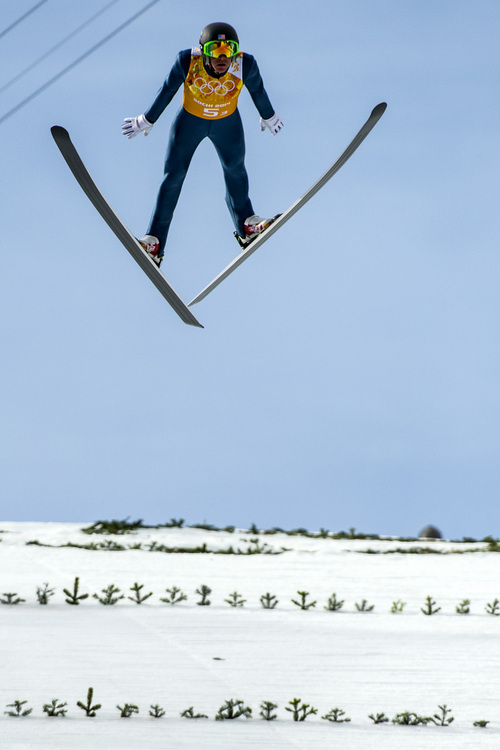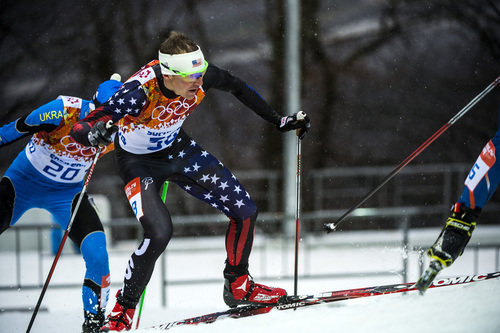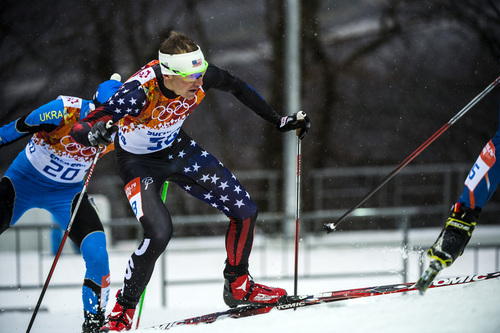This is an archived article that was published on sltrib.com in 2014, and information in the article may be outdated. It is provided only for personal research purposes and may not be reprinted.
What is life as an Olympic athlete like when you have to pave your own path?
American Nordic combined athletes will soon find out.
The United States Ski & Snowboard Association (USSA) told the Nordic combined members in a meeting Monday at the Center of Excellence in Park City that funding for one of the original Olympic Winter Games disciplines — a mixture of cross-country skiing and ski jumping — would be cut this summer.
Nordic combined will remain part of the USSA when the financial support is officially eliminated in a few months, said Luke Bodensteiner, Executive Vice President of Athletics at USSA. Bodensteiner said USSA is actively engaged in working on its variety of donors and sponsorships to try and help ease the pain of the move in the coming months, adding it will most likely fund its top two to three athletes in the sport entering next season's World Cup season.
If their attempts to raise enough revenue falls short, Bodensteiner said, then Nordic combined will shift to similar situations as ski jumping and ski cross as programs that no longer receive support from USSA, but will remain the governing body of the sport in the U.S.
"We've been fortunate to have growth on Olympics level and that's absolutely been beneficial to us as as an organization, but it also creates challenges," he said. "Essentially, we manage a dozen different sports with different levels of public relevance and long-term performance potential. What it means is we've got to make choices on where we emphasize our funding and support."
Bodensteiner said USSA knew as far back as 2008 that the association would face difficulties going forward when it came to piecing together proper ways to divvy resources. Different disciplines have gained steam in recent years, including freestyle sports. Several factors, including relevance, participation and number of athletes were part of the decision.
Five-time Nordic combined Olympian Billy Demong said the news Monday was a disappointment, but not entirely a shock having seen the precedents set with disciplines like ski jumping and ski cross.
"It's obvious the ski team is definitely becoming a performance-oriented culture and organization," said the 34-year-old who won gold and silver in the 2010 Vancouver Games.
Demong said the Sochi Games were tough for the Nordic Combined program — the U.S. netted no medals — but it won four medals in Vancouver and has won 10 medals in the last eight years in Olympics and World Championships.
Brothers and Olympic veterans Bryan and Taylor Fletcher will likely be the face of the program in the future. Pioneer Todd Lodwick announced his retirement after Sochi and with Demong on the fence about the 2018 Games in PyeongChang, South Korea.
"We're not able to do a ton of deep development on our budget," Demong said. "We're short-staffed as it is and we've been functioning on a shoe-string budget … It's hard to envision continuing to compete if I have to worry about how to fund it."
Demong said in recent seasons the Nordic combined program has been allotted over $500,000 for various training, travel and technical needs, which he called "pretty bare-bones." He said in 2002, the program had over $800,000 at its disposal.
Now, the race for the country's top Nordic combined athletes to create funding to continue competing is on.
"We have medaled quite a bit and we're still capable of doing so," Demong said. "We have a model that works. What I said to the other athletes when we heard was, 'You guys go train and be pissed and get better and that's the best thing you can do.'"
Twitter: @chriskamrani







